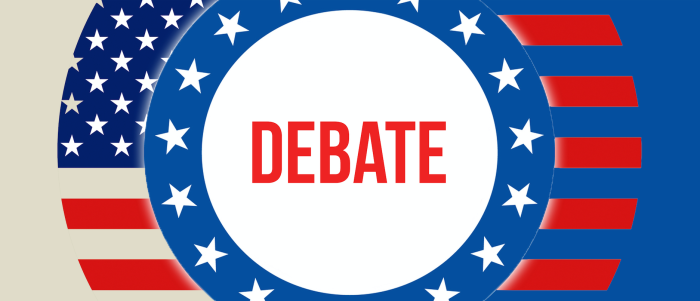Make no mistake: Iowa debates matter, writes Dan Guild. What’s at stake as the candidates take the stage in Des Moines. -promoted by Laura Belin
If you are familiar with the history of the Iowa caucuses, you know just how unprecedented this cycle is:
A two-term VP of a popular president cannot break 25 percent in Iowa.
Incredibly, three Iowa polls have been taken since the start of the new year, and among the four candidates the highest any has received is 24 percent and the lowest is 15 percent. There has never been a race this close among four candidates.
With the caucuses a mere three weeks away, only about 40 percent of voters say they have made up their mind.
Is there any trend here? Bernie Sanders is up in all three most recent polls, and there are significant downward moves for Pete Buttigieg in two of them. For the most part, though, this is a glorious mess. Who is ahead? No one knows.

Add to this uncertainty:
A Democratic electorate still in shock over the election of Donald Trump, a man most Democrats regard as completely unfit to be president (and that is putting it mildly).
A breaking controversy between Sanders and Elizabeth Warren which has escalated over the past 24 hours, reminding many of the fight between Dick Gephardt and Howard Dean that took both candidates down in 2004.
Evidence in some Iowa and New Hampshire polling that Buttigieg may be following the trajectory of Dean in 2004 (peaking too soon).
Against this fluid backdrop, it is hard to imagine a more important debate. Make no mistake: Iowa debates matter. An example: Gary Hart entered the Iowa debate under 5 percent with a mere seven days to go before the 1984 caucuses. Polling the next day showed that Hart went from 3 percent to 7 in a single night.
Yet as is so often the case, most of the reporting that night missed the moment. The New York Times the next day, for example, suggested Hart had done well, but certainly did not pick up anything to suggest he would increase his support by 13 points in a week.
So what are we likely to see during the January 14 debate?
Sanders and Warren have, as of this writing, essentially accused each other of lying. It was in the interest of neither to go there, but it is hard to imagine their exchanges will not be a lead story. My guess is they will each try to minimize the dispute, but it may be too late for that.
Joe Biden must love this turn of events. Just 48 hours ago, he was trying to explain his vote on the Iraq War. (He would be much better off saying he was simply wrong and move on.) Sanders will almost certainly attack him on these grounds, and both Biden and Sanders benefit from attacking each other in a way, because it solidifies their ideological bases.
Some were questioning whether Warren was slipping out of contention in late December, and with the lack of polling and her prior trajectory, it was a reasonable guess. The most recent polling suggests she is certainly in the mix. Warren has been fighting a two-pronged fight, one against Sanders for the left and the other with Buttigieg for those who want new leadership.
Buttigieg’s position is perhaps the most interesting. The major fights over the last 48 hours do not involve him. He may win the debate simply by watching the other three major candidates attack each other. Buttigieg’s problem is Amy Klobuchar.
This is really Klobuchar’s last chance. For her the task is simple: take down Buttigieg and become the younger alternative to Biden.
In the end, what moves votes is a memorable exchange. Often they are unpredictable, but they are almost always planned. Whether the last debate before the Iowa caucuses produces a memorable exchange may decide the Democratic nomination.


